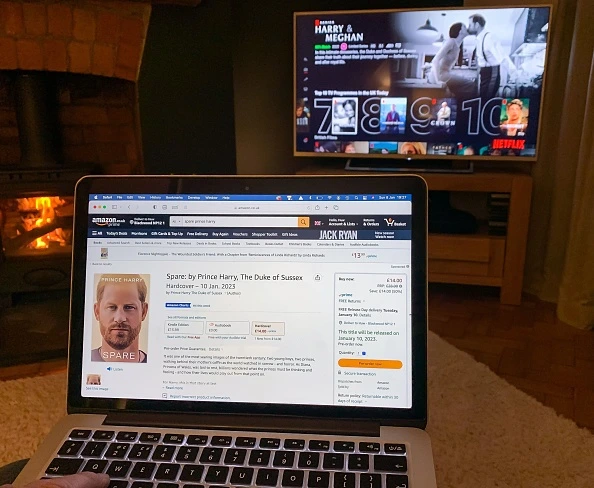
Nationally, the average broadband connection is improving. In November 2018, the median download speed was 37Mbps, with 16% of households receiving less than 10Mbps, the download speed defined as the minimum required for a decent broadband connection as part of the UK government’s universal service obligation.

On a download speed of 1Mbps, downloading an average-size film file (around 5GB) would take almost an hour and a half. In contrast, a 10Mbps connection would download the film in eight-and-a-half minutes, and a 100Mbps connection would download the film in just 50 seconds.
By March 2022, the median download speed had increased by 60%, up to 59Mbps, with just 4% of households below 10Mbps. The proportion of households able to access ultrafast broadband of 300Mbps or more is now 7%, up from 1% in 2018.
But that doesn’t mean there aren’t still significant pockets of poor broadband.
City broadband sees some minimums not met
Glasgow has the highest level of broadband disparity in the UK, with parts of the city getting less than 10% of the minimum required download speed as set by the UK government.
The slowest broadband in Glasgow was in Bearsden, while the fastest was a download speed of 840Mbps in Milton. Despite the two areas being just four miles apart, their download speeds differ by 839.4Mbps, the biggest disparity in the country.
Edinburgh too has a broadband disparity of more than 800Mbps, with its lowest download speed in the city just 2.3Mbps. On the other end of the spectrum, Bradford has a broadband speed disparity of just 129Mbps, but that is because the highest speed in the city only reaches 131Mbps.
“While the average UK broadband speed is increasing year on year, not everyone is benefiting,” said Ernest Doku, broadband expert at Uswitch.com. “We are seeing a large and growing gap between customers benefiting from ultrafast speeds and those who are getting the bare minimum.”
Across the 30 cities with the largest disparities in the country, only Hull, Belfast and Exeter have the slowest download speeds of higher than 10Mbps.
Cardiff joins Glasgow as the two cities where the slowest broadband is below 1Mbps, followed by Nottingham, where the showest download speed is 799Mbps below the fastest.
The majority of those with broadband speed of 10Mbps or lower are on old copper-wire services, which struggle to support the number of devices in the average household, and are more likely to suffer outages. But things are improving rapidly, as advances in technology bring faster options to many, and competition brings down the prices for customers looking to switch.
“Advances in technology and the roll-out of infrastructure mean that millions of customers have far faster options on their doorstep," Doku said. "And competition among providers offering full-fibre services has also helped to deliver better value to consumers.”
[Read more: The stark disparity across internet access in the US]






